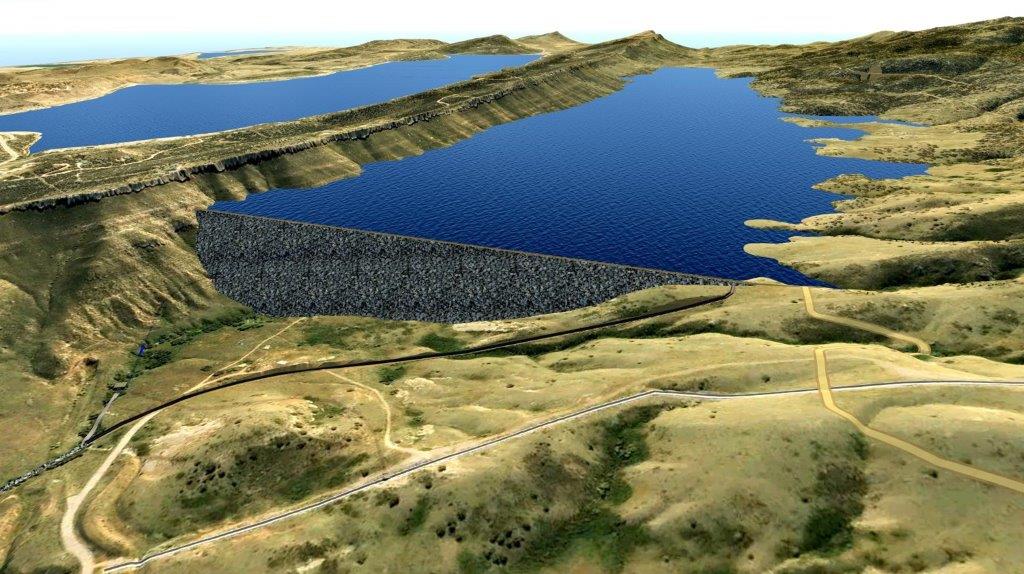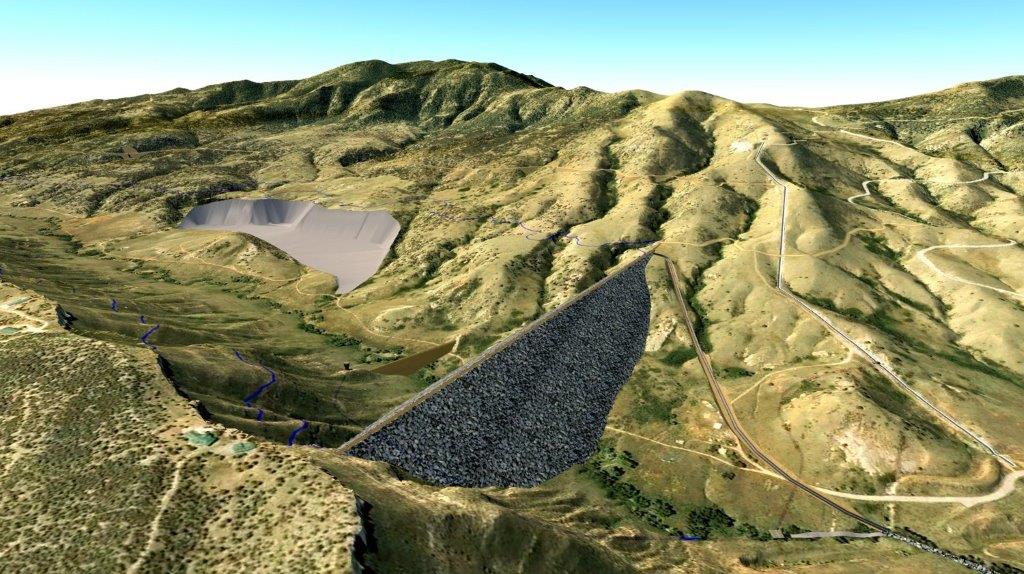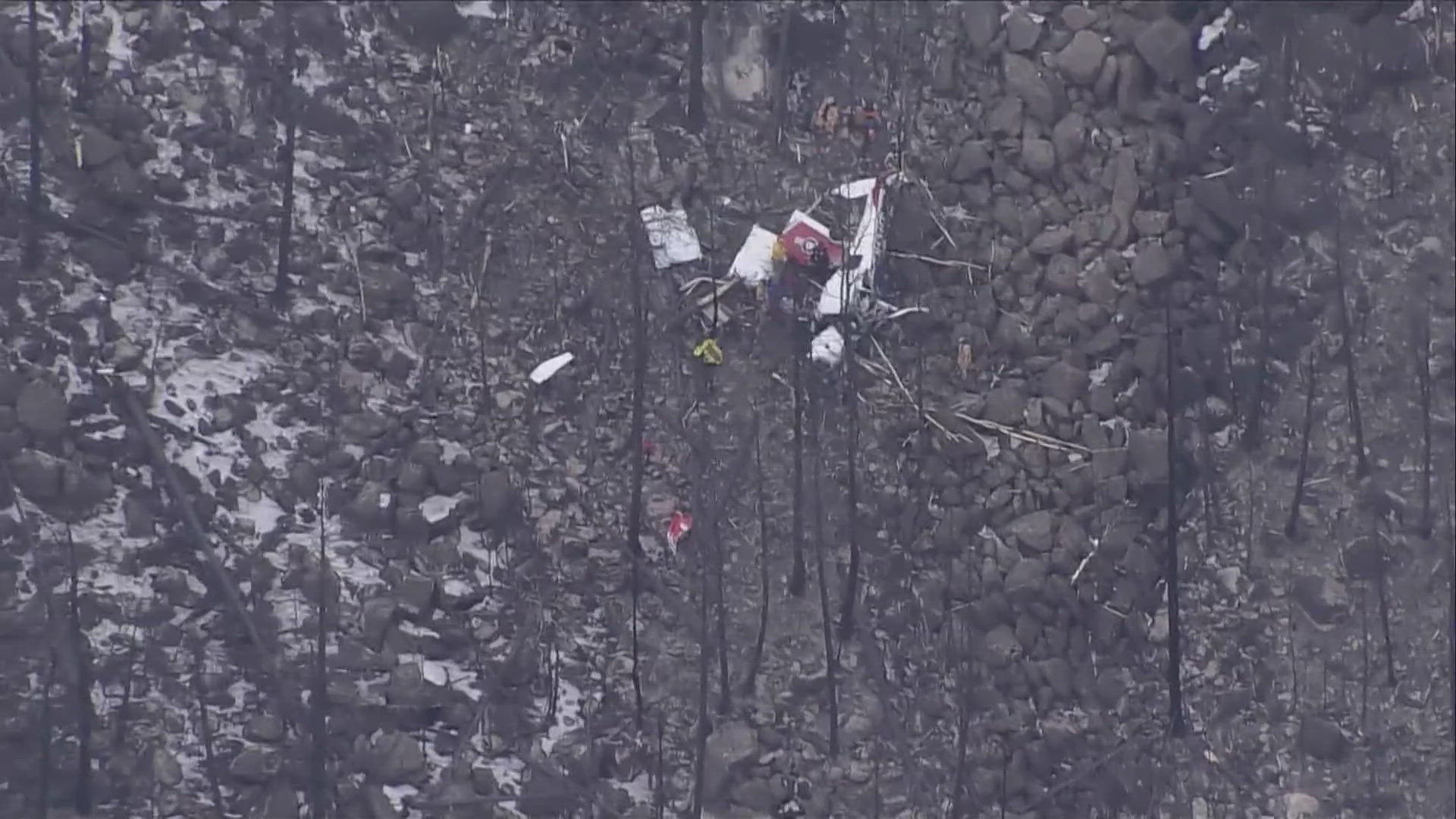Work has started on the new Chimney Hollow Reservoir in Larimer County. Final approval was granted for a 90,000 acre foot reservoir in May, and crews are now surveying and drilling at the site, to determine the extent of building materials.
Chimney Hollow will be operated by Northern Water. It is located just west of Carter Lake Reservoir, and is going to be close to the same size of twin to the east. This location was chosen for it's proximity to existing Colorado Big Thompson facilities, and because there were no threatened or endangered species, no existing residences to relocate, and they were able to acquire the property from a single owner, Hewlett Packard.
Got to tour the site of Colorado's newest reservoir #ChimneyHollow #LarimerCountyhttps://t.co/zcR7URGCW1 pic.twitter.com/0eBgbnU0Ud
— Cory Reppenhagen (@CReppWx) August 15, 2017
Nearly 400,000 northern Colorado residents will benefit from this new water supply. Those areas are Broomfield, Longmont, Loveland, Greeley, Erie, Superior, Louisville, Fort Lupton, Lafayette, and the towns in the Central Weld County Water District.
"This project specifically is to make some supplies reliable year in, and year out, for those communities. They will be able to have more of a guarantee that they will be able to pull water from the Windy Gap Project, which today, is not possible. There are some years where there is either no water available, or nowhere to store it," said Brian Werner, spokesperson for Northern Water.
The population of this region is estimated by Northern, Water to double by the year 2050, and is the driving force behind the construction of new water storage.
Contracts will start to get awarded in 2018, and Northern Water says that construction will likely start later next year, or early in 2019. It will be a three to four year build. The next step, which could happen this fall, is to relocate power lines that run through the middle of the property, and to also start clearing the vegetation.
Once construction is complete, they can start filling the reservoir with water. According to Northern Water, that could take several years to fill up.
"There are state regulations on dam safety, on how fast we can bring the water elevation up, so it's sort of fill and seal, before we can go to that next incremental level. It could take 3, or 5, or even 10 years to fill it. A lot is dependent of mother nature as well, with how much water is available," Werner said.

The water will come from the headwaters of the Colorado River, channeled back to the east from Windy Gap Reservoir.
The Chimney Hollow project has already been 14 years in the making. The permitting process began in 2003, and there have been $15 million spent in studies. The total estimated cost is $400 million.
The dam is estimated to be about 340 feet tall, which makes it the tallest dam to be built in Colorado since the Morrow Point Dam in Gunnison County back in 1968. Morrow Point is still the largest dam in Colorado at 468 feet. Denver Water has recently received approval to increase the size of Gross Dam, in Boulder County, to 471, which will make that the largest dam once it is finished.
Chimney Hollow Dam could be the first in the United States with an asphalt core. This type has been used in Europe and Canada for many years. The available land material in the area, made asphalt the more cost effective choice. The asphalt will be the inner seal of the dam, but the outside appearance will be more earthy, made of land and boulders. Arizona has also received approval to build an asphalt core dam, and could be completed about the same time as Colorado's.
Larimer County will be handling the recreation on this new reservoir, and already has some initial plans for hiking, fishing, and boating. It will be a non-motorized boating lake and a day-use area. So far, there are no plans to allow overnight camping.
There had been some opposition to this project, and other proposals to build new reservoirs in Colorado. River conservation groups are concerned about the impacts of further taxing a the Colorado River system. Werner says they are addressing the future of the river, and the future of Colorado's population at the same time.
"We are all for using water more efficiently, and water managers in this state are doing a darn good job of that, but the bottom line is that you have to provide some additional buckets, some additional water storage to meet our future demand, without drying up our agricultural lands," he said.


